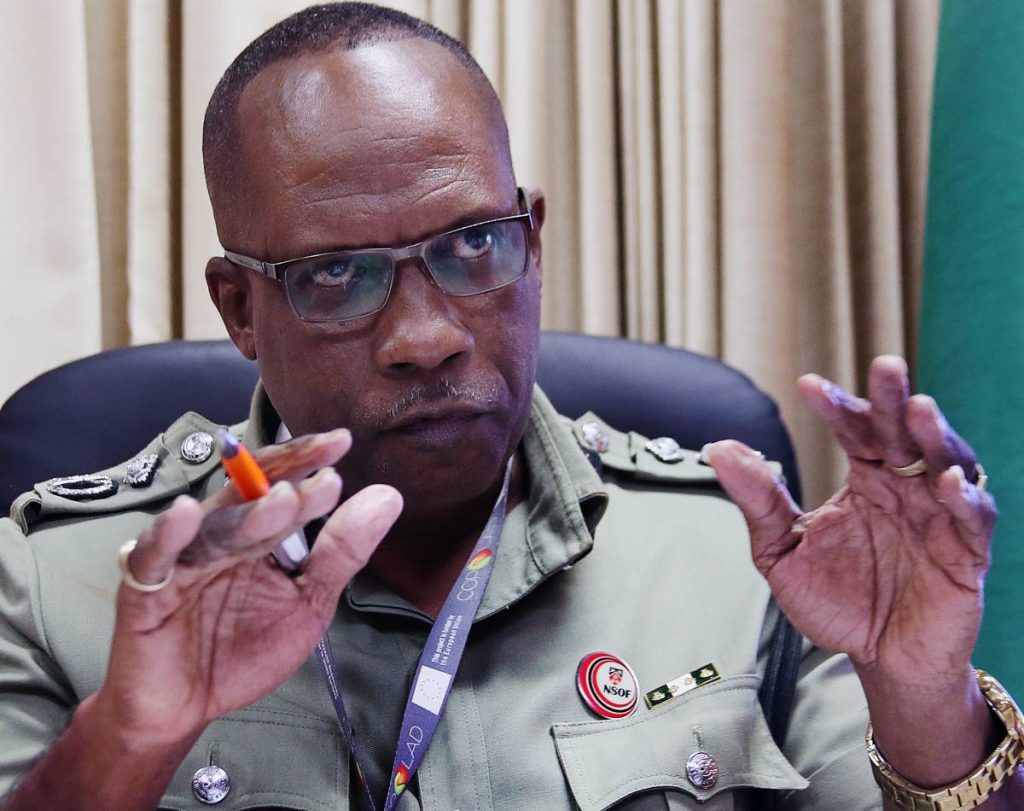Managing Rasta, Muslim risk

JENSEN LA VENDE
Before the Anti-Gang Bill was passed in Parliament on Friday, the prison service began making preparations for an influx in inmates, as many as 500, Sunday Newsday was told.
On Friday, the 37 members in Parliament unanimously agreed to pass the Anti-Gang Bill, 2018. The bill is due to become law before the end of the year as it is expected to receive full opposition support when debated in the Senate.
Prisons Commissioner Gerard Wilson, in a Sunday Newsday interview last week, said the preparation is true but did not give any indication as to the number of inmates they were expecting. He has sanctioned a unit called the High Risk Management Unit to sanitise cells at the Remand Yard of the Maximum Security Prison in Arouca and classify inmates. The unit, he said, falls under the purview of an assistant commissioner of prisons in charge of offender management. The unit is currently interviewing inmates and classifying them by gang affiliation.
Asked if the prison was preparing for alleged gang leaders, Wilson said, “We have to, also that is why this particular project with the High Risk Management Unit is so important.”
“Once we have organised the inmates and the gang legislation takes effect we can now fit the person in particular areas. So we are being proactive. This unit targets high risk inmates. They get pictures, arrest records and all the information about the particular inmate. This is how it is supposed to be but it wasn’t so because of overcrowding,” he said. “The exercise now is to sanitize the cell blocks and the high security areas. We don’t want to have the Rasta (City) versus Muslim issues going on so we try to minimize the risk.”
Wilson added that some inmates who may have been placed in isolation due to threats in the past are being re-assessed and if the threat is not longer viable, they are returned to the general population. The aim he said is to clear as much room as possible. Wilson said the interviews are geared towards minimising risk and is not limited to learning who identifies with which gang. The process, he said, is not new but he has been making changes since taking over the prison service last November.
Wilson added that there are inmates who suffer from some form of mental illness and part of the space being created is to house them away from the general population. The mentally ill will be cared for by prison officers who are trained in dealing with them, Wilson said.
Regarding other issues currently facing the prison service, Wilson said the use of pails at the Remand Yard at Arouca will soon be a thing of the past as $53 million has been allocated to retrofit the cells and install toilets. This should begin within the next two months.
Wilson added that the original plan was to construct a new facility but that has been shelved as a result of the economic downturn that the country is still recovering from. He added that the cells will be outfitted with beds as well as soon as there is financial ease.
Another casualty of the financial constraint is the completion of the nursery for the women’s prison. Wilson said the two-storey building is completed but it is not furnished. Wilson said the bond between a mother and child is important and he wants to foster that even for the inmates. He added though that there are not that many pregnant inmates so on a needs based system, the nursery remains incomplete.
Wilson said he hopes to move the perception of the prison service from a place where people are just locked away to a correctional facility where restorative justice, rehabilitation and reformation can take place. He admonished his subordinates not to use the term “tunkey” as they are more than men and women charged with locking and unlocking doors to deal with inmates.
Wilson added that soon the cost of transporting inmates will be lessened as the video conferencing rooms have already been built and need outfitting to be fully functional. He said while inmates will object to the shift as they look forward to the ride to and from court, the prison service is “always ready” for the negative impact it may have. Wilson said the cost to transport them just for an adjournment is nonsensical.
Along with the video conferencing rooms, Attorney General Faris Al-Rawi promised last week that a court will be built at Golden Grove, Arouca to further lessen the burden on the State in transporting inmates.

Comments
"Managing Rasta, Muslim risk"